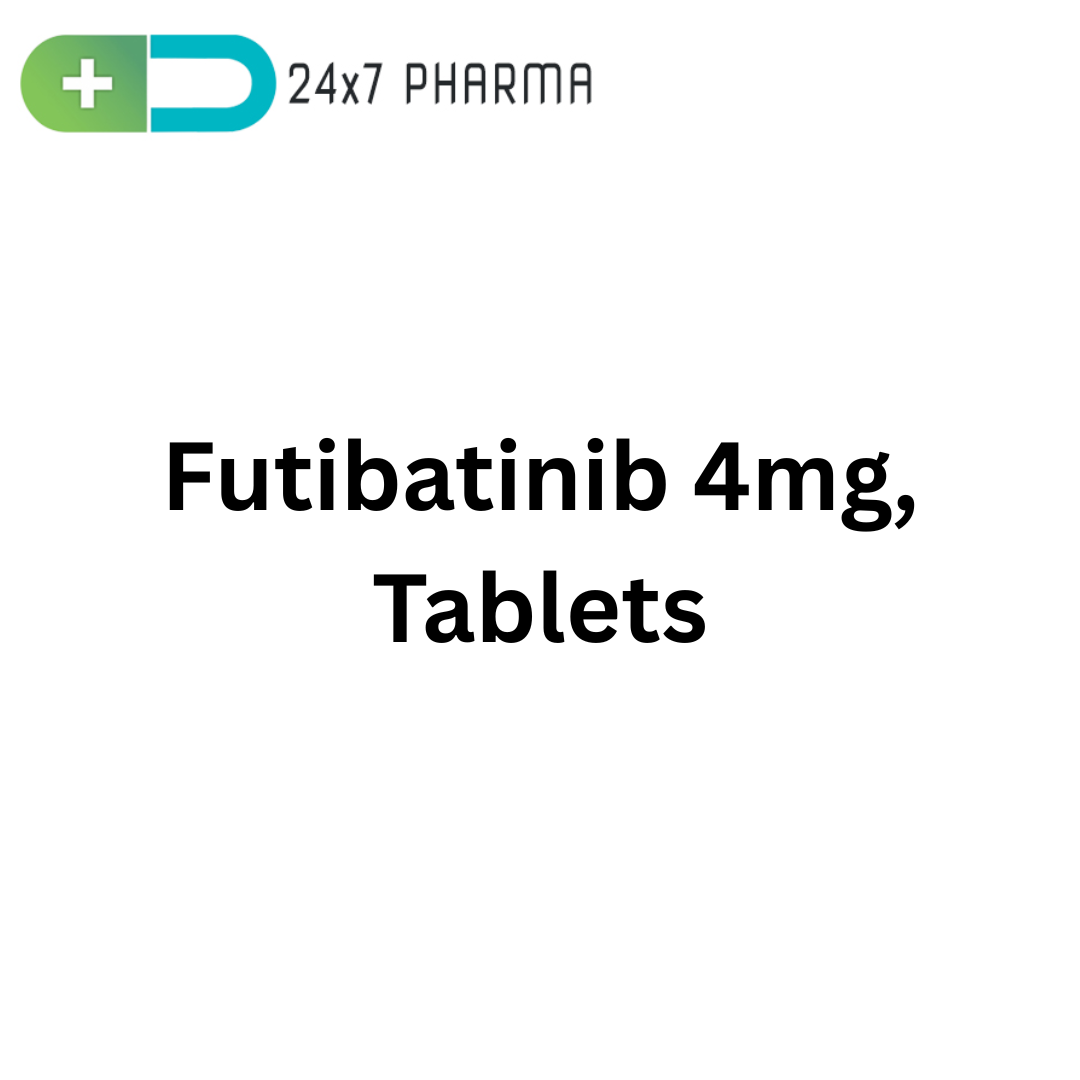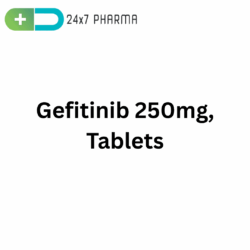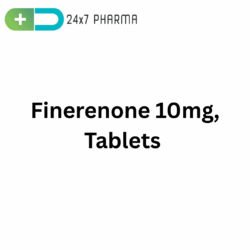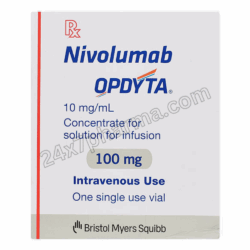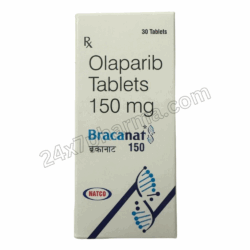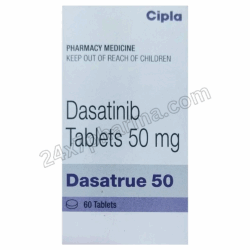LuciFutib 4mg, Futibatinib Tablets
LuciFutib 4mg is a prescription oral cancer medication containing Futibatinib, a targeted therapy used to treat certain types of bile duct cancer (cholangiocarcinoma). It belongs to a class of drugs known as tyrosine kinase inhibitors (TKIs) and specifically targets FGFR (fibroblast growth factor receptor) abnormalities. Manufactured to offer a new treatment option for patients with limited alternatives, LuciFutib provides hope in advanced cancer cases.
What is LuciFutib 4mg (Futibatinib)?
LuciFutib contains Futibatinib, a potent and selective FGFR (fibroblast growth factor receptor) inhibitor, primarily approved for treating intrahepatic cholangiocarcinoma (iCCA) with FGFR2 gene fusions or rearrangements. Cholangiocarcinoma is a rare and aggressive bile duct cancer that is often diagnosed at an advanced stage. Futibatinib is designed to target specific genetic mutations, offering a more personalized treatment approach.
How It Works / Mechanism of Action
Futibatinib works by irreversibly binding to FGFR1, FGFR2, FGFR3, and FGFR4 — enzymes involved in cancer cell growth, survival, and angiogenesis (formation of blood vessels that supply tumors). By blocking these FGFRs, Futibatinib inhibits tumor proliferation and induces cancer cell death in tumors that are dependent on FGFR signaling. Its irreversible binding makes it more durable and effective compared to reversible FGFR inhibitors.
How to Use / Indications
Indications for LuciFutib include:
- Locally advanced or metastatic intrahepatic cholangiocarcinoma (iCCA) with FGFR2 gene fusions or rearrangements.
- Patients must have disease progression after at least one prior systemic therapy.
- It is only prescribed after a positive genetic test confirming FGFR2 alterations.
- LuciFutib is not indicated for patients without FGFR2 mutations.
How to Take / Dosage
The standard recommended dosage of LuciFutib is:
- 4 mg once daily, taken orally, at the same time each day.
- It can be taken with or without food.
- Swallow tablets whole with a glass of water; do not crush or chew.
- Patients should be monitored for side effects, especially serum phosphate levels, and dose modifications may be necessary depending on tolerance and lab results.
Other Dosage Information
Dose Modifications:
- For adverse reactions (e.g., hyperphosphatemia, ocular toxicity), the dose may be reduced to 3 mg or 2 mg daily, or temporarily discontinued.
- In severe toxicity or liver dysfunction, your oncologist may adjust or stop treatment.
- LuciFutib should not be substituted with other FGFR inhibitors without medical advice.
Side Effects
Like all cancer treatments, it may cause side effects. Some common and serious ones include:
Common Side Effects:
- Hyperphosphatemia (high blood phosphate levels)
- Diarrhea
- Dry mouth
- Fatigue
- Nausea
- Nail toxicity
- Dry skin or rash
Serious Side Effects:
- Eye conditions (blurred vision, retinal pigment epithelial detachment)
- Hepatotoxicity (liver damage)
- Electrolyte disturbances
- Jaw osteonecrosis (rare)
- Regular monitoring of blood tests, eye exams, and liver function is required during treatment.
Storage
- Store LuciFutib tablets at room temperature (20°C to 25°C).
- Keep the container tightly closed and away from moisture and heat.
- Do not use after the expiration date.
- Keep out of reach of children and pets.
Benefits
LuciFutib provides several important benefits in the treatment of advanced bile duct cancers:
- Targeted therapy: Focuses on cancer cells with FGFR2 mutations, reducing harm to healthy cells.
- Better progression-free survival: Extends the period of time when the cancer does not get worse.
- Oral convenience: Easy to take at home, enhancing patient comfort and compliance.
- Alternative to chemotherapy: Offers an option when standard chemotherapy fails or is intolerable.
Prescription
LuciFutib is a prescription-only medication and should be prescribed by an oncologist experienced in treating bile duct cancers. Patients must undergo biomarker testing to confirm FGFR2 alterations before initiating treatment. It should not be used without supervision due to its potential side effects and interactions.
Interaction
LuciFutib can interact with:
- CYP3A4 inhibitors (e.g., ketoconazole, clarithromycin) – may increase Futibatinib levels.
- CYP3A4 inducers, such as phenytoin and rifampin, may lessen the efficacy of medications.
- Drugs that alter phosphate levels, such as phosphate binders, diuretics, or antacids.
- Co-administration with drugs that alter the QT interval (such as antiarrhythmics) requires caution.
FAQs
Can I take LuciFutib with food?
Yes, LuciFutib can be taken with or without food.
How long will I need to take LuciFutib?
Treatment continues as long as it is effective and well-tolerated, or until disease progression.
Is LuciFutib a form of chemotherapy?
No, it is a targeted therapy, not a traditional chemotherapy.
What should I avoid while taking LuciFutib?
Avoid grapefruit juice and herbal supplements that interfere with liver enzymes (CYP3A4). Limit exposure to bright light due to risk of eye problems.
Conclusion
LuciFutib 4mg (Futibatinib) is a promising targeted treatment for patients with FGFR2-mutated intrahepatic cholangiocarcinoma. With its specific action against FGFR-driven tumors, it represents a major step forward in personalized cancer therapy. While it offers clear benefits in progression control and convenience, it must be used under close medical supervision due to its side effect profile and interaction potential. For eligible patients, LuciFutib may significantly improve outcomes and quality of life when other treatments fall short.

